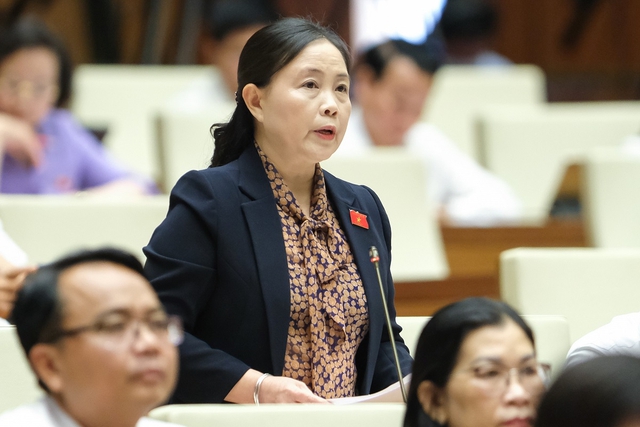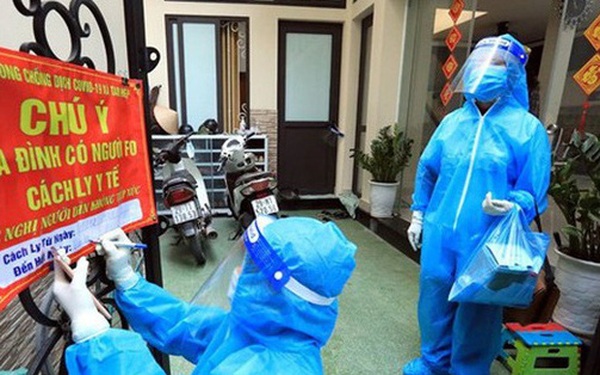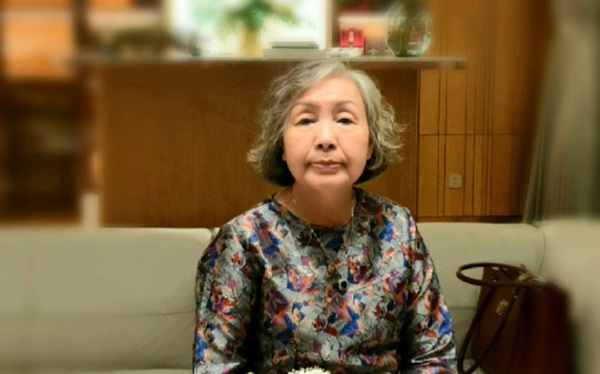“Why is the equitization of state-owned enterprises so difficult to implement?”
Speaking at the National Assembly, delegate Bui Thi Quynh Tho from the National Assembly Delegation of Can Tho province said that the Government’s report this year, like previous years, continues to reflect the work of equitization and divestment. capital at SOEs does not meet the requirements and faces many difficulties.
Specifically, including the period 2016-2020, the equitization of SOEs only achieved 23% of the plan to sell, especially, in 2021, the revenue from equitization and divestment of state capital in SOEs is very low compared to that of SOEs. estimated, only reached VND 4,400 billion/VND 40,000 billion (equivalent to 11% of the estimate), increasing mainly due to the recovery of capital from the local budget invested in locally managed enterprises.
“The report needs to analyze and re-evaluate more thoroughly, what are the core reasons, why equitization and divestment in SOEs is so difficult to implement, and whether the above legal provisions ensure enforceability or not? If it is due to organizational factors, who will be responsible? And where is the responsibility?”, delegate Bui Thi Quynh Tho raised a series of questions.
The female delegate said that there are still problems from regulations, policies and laws, slowing down the process of equitization and divestment of SOEs. The system has many documents, but some regulations are not clear, complete and unfeasible, causing difficulties in the process of implementation.
Specifically: Some major difficulties from determining enterprise value, especially the problem of determining the value of land use rights attached to enterprise assets upon equitization, due to fluctuations in land prices from time to time, The value of land use rights included in the enterprise value has many different interpretations. There are still problems in the unification of the price level and the method of calculating the 1-year or multi-year land rental.
“This issue has so far not been guided specifically, making local authorities confused when implementing, slow to decide on the implementation of tasks; The legal provisions related to the determination of goodwill have not been clearly guided, leading to the inaccurate valuation of enterprises, making it difficult for enterprises to successfully carry out their shareholders’ duties. privatization”, the Can Tho delegation pointed out.
In addition, the implementation of equitization and divestment of state capital from a number of enterprises have not met the requirements. The planning of equitization and divestment is sometimes still a formality, some enterprises are not really serious and drastic in implementing the plan for equitization and divestment according to the approved list.
“Associating the responsibility of the head with the results of the arrangement and renewal of SOEs has not been thoroughly implemented. Besides, the involvement and responsibility of the state management agency for the completion of the plan The plan for equitization and divestment of SOEs has not been really taken seriously,” said delegate Bui Thi Quynh Tho.
The female delegate said that if these problems do not have a strong enough solution, I am afraid that next year and the following years, reports on the results of equitization and divestment of SOEs will be difficult to achieve. as desired. Therefore, the delegate suggested that the Ministry of Finance quickly advise the Government to issue a consistent policy on the method of determining enterprise value, determining the value of land use rights accurately. In which, taking into account the difference in the land price bracket between localities, the land price bracket prescribed by the State compared with the market price.
“There should be sanctions to deal with heads of agencies, units, economic groups, corporations and SOEs who fail to complete or implement equitisation, divestment and restructuring of SOEs according to the plan approved by the Prime Minister. approved by the Prime Minister”, the female representative of the Can Tho delegation commented.
Proposing solutions to “save” Thai Nguyen iron and steel
Regarding the renovation and rearrangement of SOEs, delegate Doan Thi Hao from the Thai Nguyen Provincial National Assembly Delegation said that the Thai Nguyen iron and steel production expansion project phase 2 was started in 2007 to 2013, the project must construction was temporarily suspended, due to difficulties in arranging capital sources, the total adjusted investment amount increased, on the other hand, the contract signed with foreign contractors had arisen complicated disputes, exceeding the competence to handle. of Thai Nguyen iron and steel and Vietnam Steel Corporation.
Thai Nguyen Iron and Steel Phase 1 was equitized in 2009, so far it is operating very effectively, maintaining stable jobs for 4,000 employees; budget contribution reached over 453 billion dong, 71% higher than the year plan; pre-tax profit reached over 150 billion dong, equal to 3 times the year plan.

Delegate Doan Thi Hao, Thai Nguyen Provincial National Assembly Delegation
“However, at present, a part of the profit from the production of Thai Nguyen iron and steel in phase 1 is still being used to balance the loans of the phase 2 expansion project; including Overdue debts, some loans have been transferred to group 5, penalty interest and interest on interest are calculated”, delegate Doan Thi Hao stated in fact.
The Thai Nguyen delegation asked the National Assembly and Government to pay attention and have solutions to restore Thai Nguyen iron and steel phase 2.
“It is recommended to survey the process of innovation and reorganization of businesses at Thai Nguyen Iron and Steel Company, because some of the main difficulties of Thai Nguyen iron and steel may not be common, so it is necessary to have a mechanism, particular policy. Requesting the Government, ministries and central branches to completely handle shortcomings and obstacles to speed up the investment progress, with the earliest and most effective motto as in the Government’s Resolution 68 on May 12. recently”, the Thai Nguyen delegation suggested.
Delegate Doan Thi Hao also suggested that Thai Nguyen iron and steel should completely handle contract disputes with foreign contractors, consider restructuring debts; continue to direct commercial banks and credit institutions to freeze debts, delay debts, and reduce lending interest rates when the project goes into production to preserve capital sources and the value of invested State assets.
at Blogtuan.info – Source: cafebiz.vn – Read the original article here



